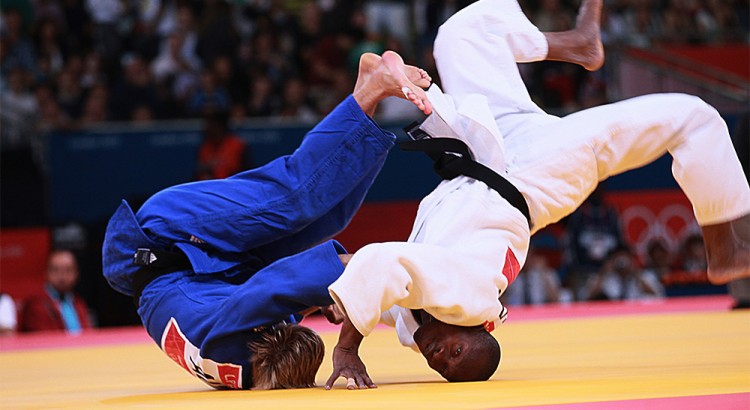Judo is one of the most popular disciplines in the world of martial arts and for a very good reason. It is unique because it does not even teach strikes and its rules are way different from others like karate, taekwondo, or aikido. Judo is all about throws, grappling, and submission. From judo comes a derivative discipline called BJJ or the Brazilian Jiu Jitsu. It is now one of the most known disciplines in the MMA universe. It is so popular that it is even starting to overshadow judo in many ways although the latter is more recognized with its Olympic inclusion. What are the actual, most obvious differences between the two?
Strategy Differences
Judo and BJJ have very different strategies. Judo is about having a firm grip on the opponent and then throwing him off balance so that when he hits the ground, he will be immobilized. This is a rather straightforward kind of strategy compared to BJJ. This also makes judo a more ideal self defense technique as it strives to neutralize an opponent early on. When both judokas hit the ground at the same time then chokes and submission techniques comes into the picture.
Brazilian Jiu Jitsu sees the beginning of the fight when the opponent hits the ground. BJJ focuses on the ground fighting and fighters who are not used to the techniques of BJJ will surely succumb to the many variation of chokes employed in the combat sport. Domination on the ground is the key goal of BJJ.
Rule Differences
Judo can easily decide if a fight is won only by the solid throwing of the opponent to the ground. This is called an “ippon”, a very straightforward means to judge the outcome of a match. In BJJ a throw can only be rewarded points, how high this goes would depend on the quality of the throw. The ultimate resolution of a BJJ match is the submission of the other, either by a choke or a hold that puts a strain to different parts of the body that causes immense pain.
In judo, the engagement on the ground is timed and if there is no submission from both fighters in that time window, both of them would assume their standing position to start another attempt at the sport. A judo match starts immediately as judokas are figuring a way to get the other to the ground.
Culture
Brazilian Jiu Jitsu is a modern approach to combat sports. The culture of BJJ is to apply a myriad of ways to make sure that the opponent submits. This often means that everything can go as far as applicable techniques are concerned. Even the founder of BJJ, Helio Gracie, underwent a necessary surgery because of a submission incident and he almost died once as he passed out while resisting the urge to tap out of a killer choke. This clearly defines the overall culture of BJJ – it is a more vicious and unforgiving kind of martial art.
Judo on the other hand is built around traditional Japanese martial art philosophy. It operates in the idea of respect so there will always be limits to what you can do while engaging an opponent. This does not mean however that judo does not demand much from its practitioners. Judo is very demanding in some aspects of its training and this includes understanding how to keep your balance best, outmaneuvering the enemy from having a firm grip on any part of your body, and finding a way to get the opponent to the ground in one clear sweep. It can be observed that judo matches are faster and more aggressive compared to BJJ matches. This is because judokas are rushing to get the other to the ground. In the case of BJJ, the opposite is sometimes true – some fighters even allow themselves to be brought down to the ground if this is one of the best ways to position for a submission as they go down.
BJJ and Judo share the same background – Jujutsu. Although there are differences between both combat sports, it is very easy to spot the similarities. It is also obvious that both can complement each other in so many ways so that the mastery of judo can immensely help a BJJ fighter and vice versa. The mechanics of the fight of both are nearly the same and the rules only differ because of the premise of where the actual fight starts.
Which of the two is better? The choice would depend on the preferences and application of the sport to the one who would pursue it. However in the self defense context, Judo would be more practical because of its simpler nature. Its offensive goals are also easier to achieve.
